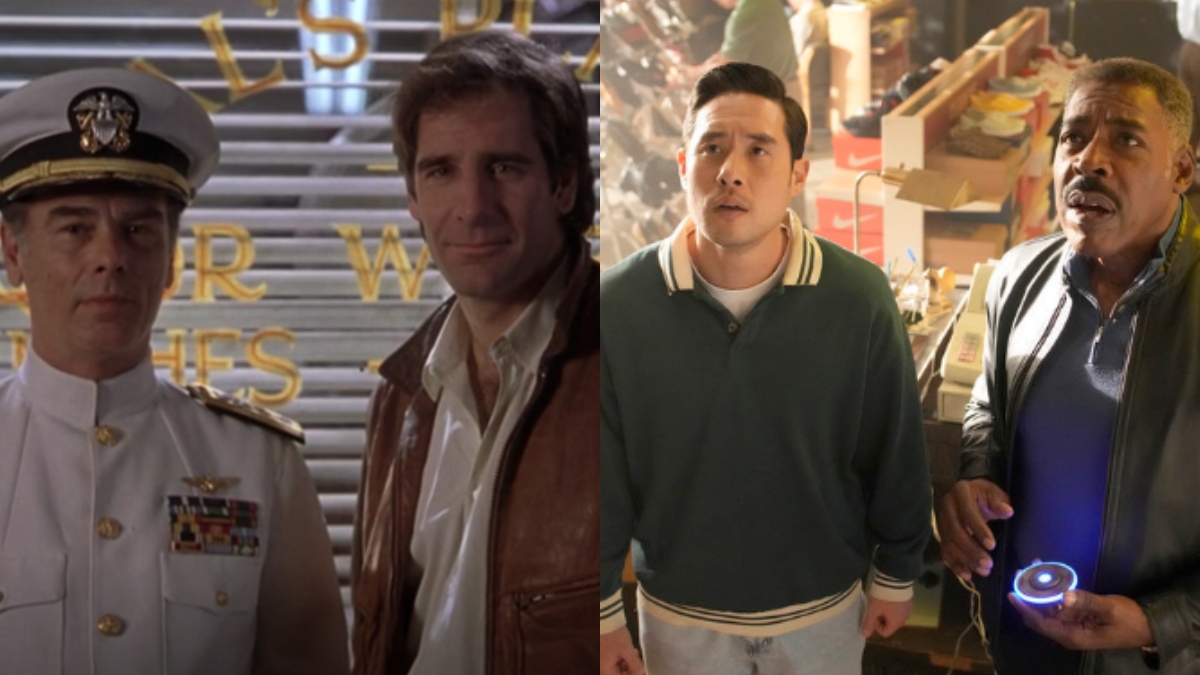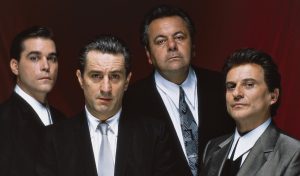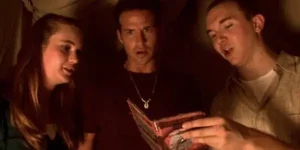
Despite its status as one of the least “sci-fi” of sci-fi shows, in part due to its focus on “down to Earth” stories, the original Quantum Leap still has a set of “rules” that fans judge its stories by. A Leaper can’t leap outside their own lifetime. “God, time, fate, or whatever” is leaping people through time. Aliens exist. Sam (Scott Bakula) never got home after the end of the original series and it was a travesty.
These rules have become sacrosanct to fans of the series, especially without new material for over 30 years. Fans have constantly poured over the original episodes of Quantum Leap, laying out the hard rules of what can and can’t be done in the world. It’s no surprise that when the new Quantum Leap debuted, especially since it’s an in-continuity sequel to the original series, fans were ready to call out any and all “rule breaking” the show did.
Ben (Raymond Lee) is able to leap outside his own lifetime. A recent episode theorized that “sacrifice” is what leaps people through. Aliens may not exist. Sam not getting home maybe wasn’t as bad as it seemed. These are just a few of the changes that have rankled fans. Why is the new series questioning the deeply entrenched rules of the original series?
While Martin Gero and Dean Georgaris, executive producers and showrunners of the new Quantum Leap are committed to being “reverential” to the old series they, as Gero puts it, never want to be, “restricted by it.”
“There are some rules that we don’t want to break if it breaks the very fabric of the idea of Quantum Leap.”
But they won’t let that stand in the way of making new and engaging episodes of the series, with Gero specifically citing the breaking of the “can’t leap outside their life” rule.
“Some of the die-hard fans had a problem with that at first, which I totally get, (but) our new viewers who didn’t know the rule don’t care. And I think the old viewers have come around because it gets us into certain areas that are a lot more fun.”
Georgaris brings up the new series’ focus on what’s going on back at the Project. In the original series, getting to see what was going in the future was rare. In the new series it’s happening every episode. This decision forced the writers to answer questions the original series didn’t have to tackle.
“There were only so many questions you could ask (in the original series) about, ‘what does this mean? How could this actually work?’ One of the things that I find exciting, I think we all find exciting, is, let’s question all these assumptions. What assumptions have we made that might not actually be true?”
The idea of this bothers some fans but Georgaris agrees with the idea that we brought up to him, that much of the “lore” of the original series that fans think of as “fact” was, in part, guesses and theories in the actual story. This allows the creatives of the new series to question the most heartbreaking part of the original show, that Sam never got home.
“We spent 30-plus years assuming this is it. This heartbreaking title card that just says, ‘Sam Beckett never made it home.’ It’s a terrible gut punch for all of us fans.”
But the new Quantum Leap, in the episode “The Lonely Hearts Club,” raises the idea that sacrifice is part of leaping through time. That the people who leap are willing to give up coming home if it means they can make the world a better place. Georgaris is quick to say this isn’t now one hundred percent confirmed lore, that sacrifice is the engine behind the leaps, but simply a question that allows viewers to shift their perspectives on the end of the original series.
“All of a sudden that title card doesn’t read quite as sad, at least to me personally, because I don’t assume that it’s a bummer.”
What’s so useful about the new Quantum Leap’s bending and questioning of the rules is that it does bring new angles to the old series. That once was set in stone and could never be changed now has fresh perspectives. Ones that can give you new insights into what came before. And they’re insights that come with the endorsement of key original series creator Deborah Pratt, who’s heavily involved in the new series as well. Georgaris appreciates this as the rare opportunity it is
“You have an original creator on your set who is generous enough to embrace your taking of their creation and doing a different spin on it.”
The new spin on Quantum Leap and the supposed breaking of its “rules” may not please all fans but that’s okay, it still makes for fascinating discussion that will keep this show alive for years to come.
New episodes of Quantum Leap season 2 premiere Wednesdays at 8 p.m. ET on NBC.
The post How The New Quantum Leap Plays With Lore appeared first on Den of Geek.











